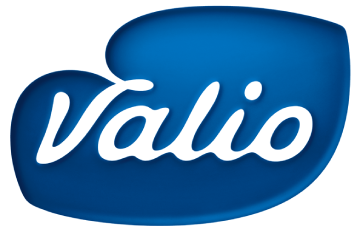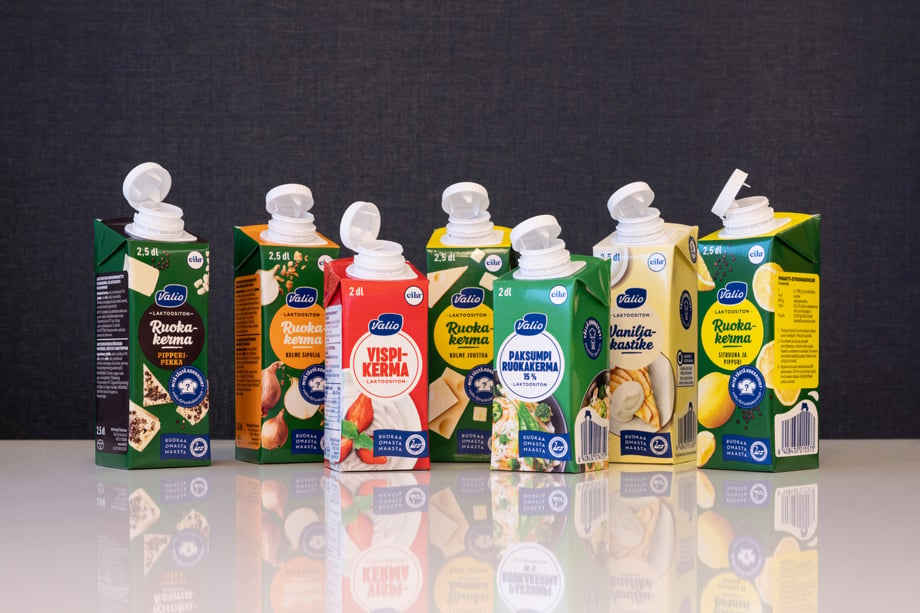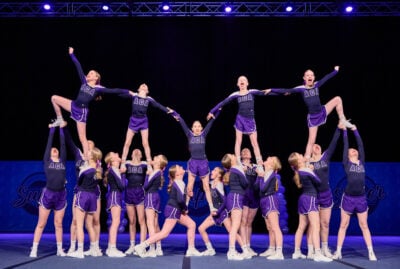Valio’s packages with caps will change to tethered caps step by step. Drinkable products with caps will be gradually changed to comply with the requirements of the EU Single-Use Plastics Directive. The aim of the directive is to reduce the amount of plastic litter in the environment, especially on ocean beaches, and to promote a circular economy. The change will require that the caps of any beverage containers of up to three litres must remain attached to the carton. The first changes in Valio’s packaging will be visible in the first half of 2023. All the necessary changes will be done by the deadline set in the directive, i.e. before July 2024.
The aim in the EU is to reduce the amount of plastic litter ending up in the environment and to promote a circular economy. The first step was to ban single-use plastic plates, cutlery, and straws in July 2021 among other requirements. The scope of the directive expands on July 3, 2024, to require tethered caps on beverage packages of up to three litres.
The change impacts the majority of Valio’s liquid product containers of up to three litres that have a plastic cap, in all about two hundred Valio products, like milk, cream, sour milk, cooking creams, smoothies, porridges and berry soups.
“The change has required a lot of preparation and planning, both internally and with our packaging suppliers. The change will lead to equipment investments at our factories, depending on the type of packaging. From the recyclability perspective, we believe that it’s very important for all recyclable materials – including plastics caps – to be recycled and reused. This will also help to ensure that plastic caps are collected and will not end up in the environment,” says Valio’s Packaging Development Manager Jussi-Pekka Lumme.
Caps are a packaging innovation that makes everyday life easier for many
The plastic caps on liquid product packages sometimes spark debate both for and against. Valio has conducted multiple surveys about the packaging preferences of Finnish consumers. Based on the survey results, many people don’t want to see an end to packages with caps, like milk cartons.
“There are advantages to a package that can be sealed tight with a cap: it is readily portable, and it can be stored on its side in a refrigerator. All Valio gable-topped milk, sour milk, cream and yogurt products sold in Finland, including their caps, are made from 100% renewable raw materials. The plastic parts of the packaging are not fossil-based; they are made from bioethanol, a by-product of the sugarcane industry. Also, the traditional pourable carton is still functional, and many prefer this alternative,” notes Jussi-Pekka Lumme.
The packaging renewal will also lead to a change in the recycling instructions on a milk carton. The packaging that includes the cap will have to be recycled with carton recycling. The plastic will be separated from the carton board at the recycling plant. During the recycling process, the carton packaging is soaked, the soaked cardboard sinks, the plastic rises to the surface, and then the plastic parts can be separated.
“We encourage consumers to recycle all packaging correctly. For instance, we have added easy-to-find, plain-language recycling instructions to our packaging. Recycling all parts of the packaging conserves natural resources and reduces the use of virgin plastic. It is estimated that the use of recycled plastic reduces a packages carbon footprint by 40–60 per cent compared to a product made from non-recycled, fossil-based plastic,” says Valio’s Head of Packaging Development Juhana Pilkama.
Pilkama notes that packaging at Valio is continuously being developed to make it better suited for a circular economy and to minimise climate impacts. Ideally, environmentally smart packaging is recycle-ready and made from renewable or recycled materials.
Valio’s goal is that by the end of 2025 all packaging is recycle-ready, i.e. it can be used to make new products.
“Our goal is to reduce the overall environmental impacts in a smart way: the right kind of packaging protects products and prevents food waste, and packaging made from renewable or recycled materials reduces the carbon footprint of products. The carbon footprint of Valio’s packaging is typically about two per cent. We are working to zero milk’s carbon footprint by 2035,” Juhana Pilkama sums up.




